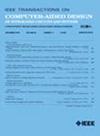CodePM: Parity-Based Crash Consistency for Log-Free Persistent Transactional Memory
IF 2.7
3区 计算机科学
Q2 COMPUTER SCIENCE, HARDWARE & ARCHITECTURE
IEEE Transactions on Computer-Aided Design of Integrated Circuits and Systems
Pub Date : 2024-11-06
DOI:10.1109/TCAD.2024.3493014
引用次数: 0
Abstract
Emerging persistent memory (PM) can provide large persistent capacity with performance comparable to DRAM in modern memory systems. Persistent transactional memory (PTM) needs to ensure data consistency after unexpected power loss or crashes. Therefore, crash consistency strategies, such as persistent logging, are still required. However, the additional overhead introduced by these strategies, such as significant extra writes on PM, can lead to system performance degradation. In this article, we propose CodePM, a fault-tolerant PM transactional library that utilizes parity-based crash consistency to remove logging overhead while guaranteeing the correct state of data. CodePM reuses the decoding capability of parity to detect and recover inconsistent objects. To ensure consistency without logs when updating, CodePM employs fine-grained memory fences to carefully align potential inconsistency with the repairability of parity. To detect inconsistency without logs when recovering, CodePM utilizes optimistic speculative scanning recovery by reusing checksum and parity, which supports instant recovery with transient degraded reliability. Moreover, we study the memory fence blocking effects and further augment CodePM with pipelined encoding and persistent writing to hide update latency. We implemented CodePM on Pangolin, the state-of-the-art parity-based PTM for fault-tolerance. Evaluation results with real-world workloads on Intel Optane DCPMM show that CodePM can achieve up toCodePM:基于奇偶校验的无日志持久事务性内存崩溃一致性
新兴的持久内存(PM)可以提供大的持久容量,其性能可与现代内存系统中的DRAM相媲美。持久性事务性内存(PTM)需要在意外断电或崩溃后确保数据一致性。因此,仍然需要崩溃一致性策略,例如持久化日志记录。然而,这些策略带来的额外开销,比如对PM的大量额外写操作,可能会导致系统性能下降。在本文中,我们提出了CodePM,这是一个容错的PM事务库,它利用基于奇偶校验的崩溃一致性来消除日志开销,同时保证数据的正确状态。CodePM重用奇偶校验的解码能力来检测和恢复不一致的对象。为了确保更新时没有日志的一致性,CodePM使用细粒度的内存栅栏来仔细地将潜在的不一致与奇偶校验的可修复性结合起来。为了在恢复时检测不一致而不记录日志,CodePM通过重用校验和和奇偶校验来利用乐观推测扫描恢复,这支持具有瞬时降级可靠性的即时恢复。此外,我们还研究了内存栅栏阻塞效应,并进一步使用流水线编码和持久写入来增强CodePM以隐藏更新延迟。我们在Pangolin上实现了CodePM,这是用于容错的最先进的基于奇偶校验的PTM。在Intel Optane DCPMM上对实际工作负载的评估结果表明,CodePM可以实现比穿山甲高3.4倍的吞吐量。
本文章由计算机程序翻译,如有差异,请以英文原文为准。
求助全文
约1分钟内获得全文
求助全文
来源期刊
CiteScore
5.60
自引率
13.80%
发文量
500
审稿时长
7 months
期刊介绍:
The purpose of this Transactions is to publish papers of interest to individuals in the area of computer-aided design of integrated circuits and systems composed of analog, digital, mixed-signal, optical, or microwave components. The aids include methods, models, algorithms, and man-machine interfaces for system-level, physical and logical design including: planning, synthesis, partitioning, modeling, simulation, layout, verification, testing, hardware-software co-design and documentation of integrated circuit and system designs of all complexities. Design tools and techniques for evaluating and designing integrated circuits and systems for metrics such as performance, power, reliability, testability, and security are a focus.

 求助内容:
求助内容: 应助结果提醒方式:
应助结果提醒方式:


